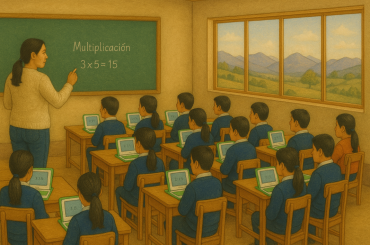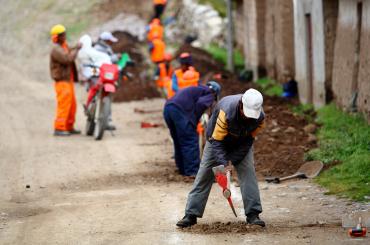
Peru
-

One Laptop per Child: Lessons from a long-term follow up
Long-term research on the One Laptop per Child programme reveals that providing laptops to students did not have a positive impact on educational outcomes, likely driven by lack of effects on cognitive skills and limited classroom adoption.
-

How Peru transformed natural resource wealth into local economic development
Peru’s experience, where transfers to local governments were funded by natural resource tax revenues and had a host of economic benefits in non-extractive areas, highlights the importance of fiscal redistribution in taking advantage of natural resour...
-

Behavioural strategies to reduce teacher sorting in Peru
Low-income students are more likely to attend schools with less-qualified teachers widening achievement gaps. The Peruvian government’s novel and low-cost nationwide strategy was successful at encouraging highly qualified teachers to apply for jobs i...
-

Gender stereotypes in the classroom affect gender inequality later in life
Stereotyped assessments by teachers exacerbate gender disparities in educational outcomes for high school students in Peru. New evidence shows that these negative impacts persist years later in labour market gender gaps.
-

Understanding the lack of skill specialisation in Peru
Jobs in Peru use a larger number of skills than comparable jobs in the US. This lack of specialisation is consistent with firms’ hiring of "toderos" (workers with many skills, do-it-alls), given the high levels of worker reallocation.
-

Commuting to opportunity? How transport infrastructure shapes students’ college decisions in Peru
The introduction of mass public transportation systems in Lima, Peru, connected neighbourhoods, reduced commuting times, and increased access to college
-

How effective are monetary incentives to vote?
A larger fine for electoral abstention increases voter turnout but does not affect election outcomes in settings with compulsory voting
-

How the wage-setting power of firms shapes Peru’s economy
Labour market power hinders development by suppressing wage employment and also fostering a dependence on self-employment that undermines the effectiveness of policies aiming to boost wages and wage employment
-

The gendered effects of import competition in Peru
Chinese import competition in Peru had adverse effects on employment in the short term, which dissipates for men, but is long-lasting for low-educated women in the tradable sector